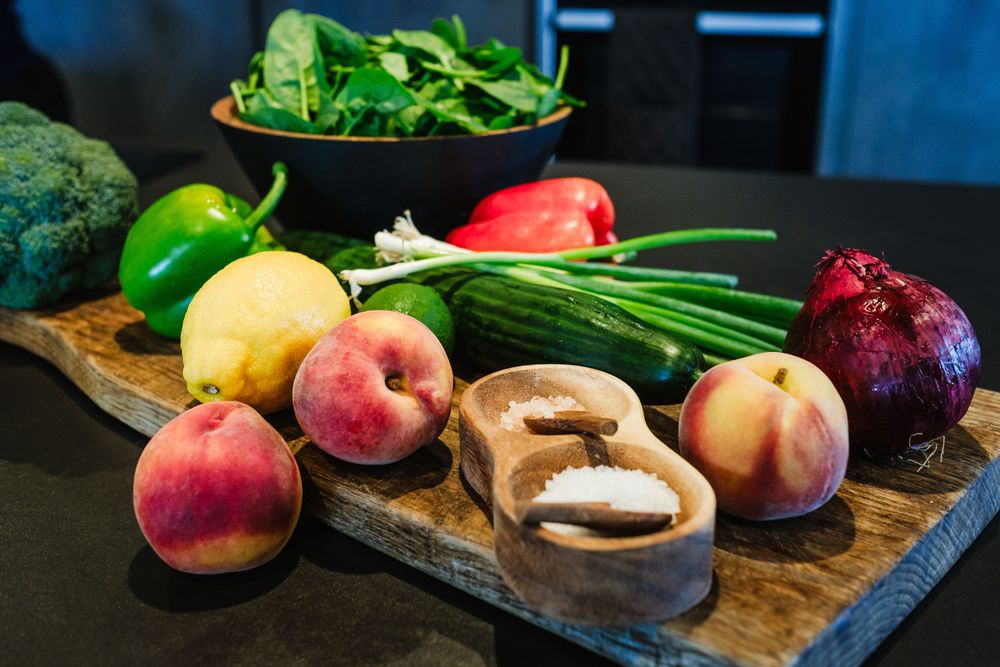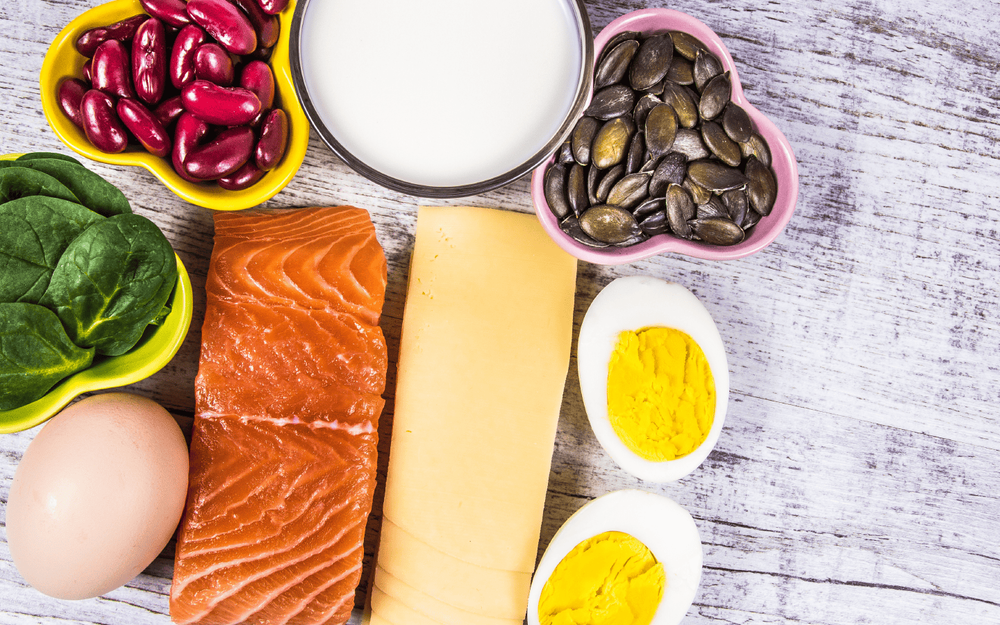
What is the best healthy diet?
There’s no shortage of opinions when it comes to diet, from low-carb and high-protein to plant-based and Mediterranean. But with so many different eating plans and food trends out there, how do you know what truly counts as a healthy diet?
In this article, we’ll cut through the noise and explain what makes up a healthy, balanced diet. We’ll explore the core components your body needs to function at its best, look at popular dietary approaches and offer practical tips to help you eat in a way that supports your long-term health.
What does a healthy diet really mean?
A healthy diet is one that supports your body’s daily functions, provides enough energy and reduces your risk of chronic diseases. It includes a wide range of nutrient-rich foods in the right proportions and limits foods that are high in added sugar, salt and unhealthy fats.
Healthy eating isn’t about strict rules or complete restriction. Instead, it’s about variety, balance and consistency. A good diet helps maintain a healthy weight, fuels your body, supports mental wellbeing and can help lower your risk of conditions such as heart disease, type 2 diabetes, high blood pressure and certain cancers.
The building blocks of a healthy diet
While individual needs may vary based on age, gender, health status and activity level, a healthy diet typically includes:
1. Plenty of fruits and vegetables Aim for at least five portions of fruit and veg each day. These are rich in vitamins, minerals and antioxidants that support your immune system and overall health. Choose a mix of colours to get a range of nutrients - for example, leafy greens (rich in folate), orange veg (high in beta carotene) and berries (packed with vitamin C and antioxidants).
2. Wholegrains over refined grains Wholegrains such as brown rice, oats, wholemeal bread and quinoa contain more fibre B vitamins and minerals than refined carbohydrates like white bread and pasta. They help maintain energy levels and support digestive health.
3. Lean protein sources Protein is essential for muscle repair, immune function and hormone production. Healthy sources include poultry, fish, eggs, dairy, legumes (such as lentils and chickpeas), tofu and nuts. Red meat can be part of a balanced diet but should be eaten in moderation, ideally no more than 70g a day.
4. Healthy fats Fat is an essential nutrient, but the type of fat you consume matters. Replace saturated and trans fats (commonly found in processed snacks and fried foods) with unsaturated fats from sources like olive oil, avocados, nuts and oily fish such as salmon or mackerel. These support brain health and heart function.
5. Low intake of added sugars and salt Too much sugar can lead to weight gain, increased triglycerides and higher risk of type 2 diabetes. Watch out for hidden sugars in processed foods, drinks and sauces. Excess salt intake is linked to high blood pressure, so try to limit salty snacks, cured meats and ready meals.
6. Stay hydrated Water plays a role in almost every function in the body, from regulating temperature to aiding digestion and joint health. Aim for 6 to 8 glasses of fluid a day, mostly from water but herbal teas and low-fat milk can also count.
Popular dietary approaches – how do they compare?
There’s no one-size-fits-all when it comes to healthy eating. Let’s take a look at a few well-known dietary approaches that are supported by evidence and commonly recommended by health professionals.
Mediterranean diet
This is widely considered one of the healthiest diets in the world. It emphasises wholegrains, fruit, vegetables, nuts, seeds, legumes, olive oil and moderate amounts of fish and dairy. Red meat and sugary foods are eaten occasionally. Studies show it may reduce the risk of heart disease, stroke and cognitive decline.
DASH diet
Developed to combat high blood pressure, the DASH (Dietary Approaches to Stop Hypertension) diet is rich in fruits, vegetables, wholegrains, lean proteins and low-fat dairy. It encourages foods low in sodium and high in potassium, magnesium, and calcium.
Plant-based diets
These centre around fruits, vegetables, wholegrains, legumes, nuts and seeds. While not all plant-based diets are vegan, reducing meat and processed foods can benefit heart health and reduce inflammation. It’s important to ensure adequate intake of vitamin B12, iron and omega-3s if avoiding animal products.
Low-carb and keto diets
Some people find low-carb or ketogenic diets helpful for weight loss or blood sugar control. However, these diets can be difficult to maintain long term and may restrict beneficial fibre-rich foods. Always speak to a health professional before making major changes to your diet.
What diet is best for you?
The best healthy diet is one that’s sustainable, enjoyable and tailored to your individual needs. Your health status, family history, activity levels, age and even your hormone profile can affect how your body responds to different types of food.
For example, men and women have different nutritional requirements, and health conditions like thyroid disorders, insulin resistance or hormone imbalances can influence your energy levels, metabolism and dietary needs.
A comprehensive health assessment can help you better understand what your body needs. At Bluecrest Wellness, our Health MOTs are designed to give you detailed insights into your overall health - including cholesterol, blood sugar, liver and kidney function and more. These insights can help you build a diet that supports your long-term wellbeing.
Tips for building a healthier diet
Here are some simple steps to help you improve your eating habits over time:
-
Plan meals ahead to reduce the temptation of quick, processed options
-
Cook at home more often so you know exactly what’s going into your meals
-
Use smaller plates and practice mindful eating to avoid overeating
-
Read food labels to keep an eye on sugar, salt, and saturated fat
-
Snack smart with options like fruit, yoghurt, nuts or wholegrain crackers
-
Introduce changes gradually – small shifts can make a big difference over time
Should I take supplements?
A healthy diet should give you most of the nutrients you need, but some people may benefit from supplementation – particularly vitamin D (especially in the UK during winter), vitamin B12 (for those on a vegan diet) and folic acid (for women trying to conceive). Always speak to your GP or healthcare provider before starting any new supplement.
How diet affects your long-term health
Nutrition plays a central role in preventing and managing many chronic conditions. A poor diet is one of the leading risk factors for diseases such as:
-
Heart disease and stroke
-
Type 2 diabetes
-
Certain cancers (such as bowel or stomach cancer)
-
High blood pressure
-
Obesity
-
Cognitive decline
Maintaining a healthy diet also supports your immune function, helps maintain stable energy levels, and improves mood and sleep quality, all of which have a positive impact on your overall wellbeing.
Check your health and take control
Understanding your current health status is the first step to making informed changes. At Bluecrest Wellness, our private Health MOTs give you a clear picture of your health, including body composition, heart function, key blood markers and more.
Health assessments are available at convenient locations across the UK and include fast, accurate results from fully accredited UK laboratories. You’ll also receive a detailed Results Report and a year’s access to a 24/7 GP helpline – giving you support and peace of mind beyond the day of your test.














